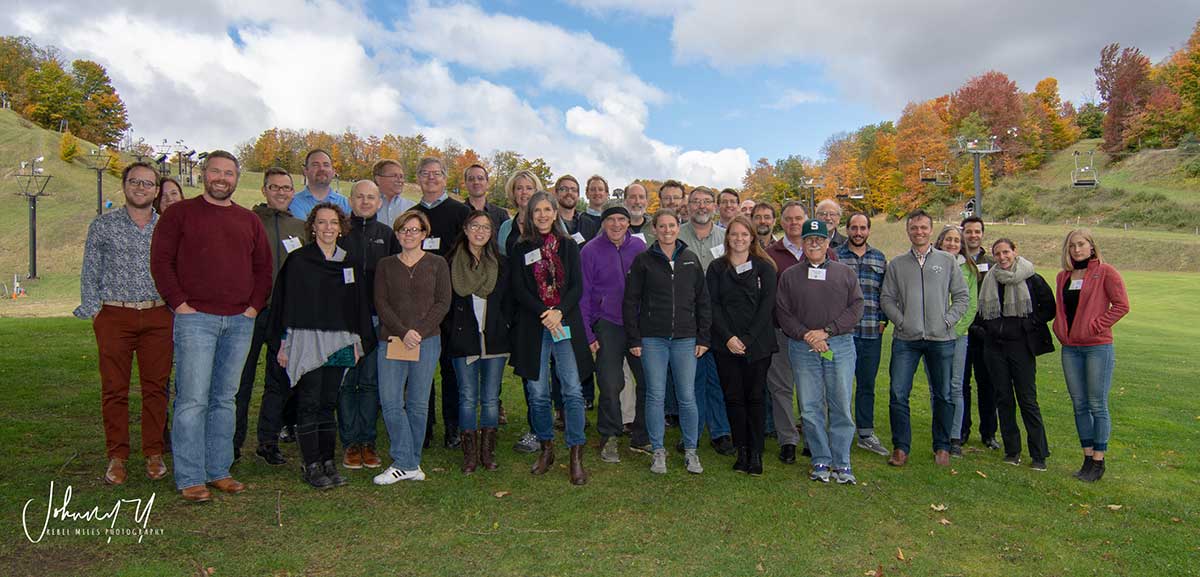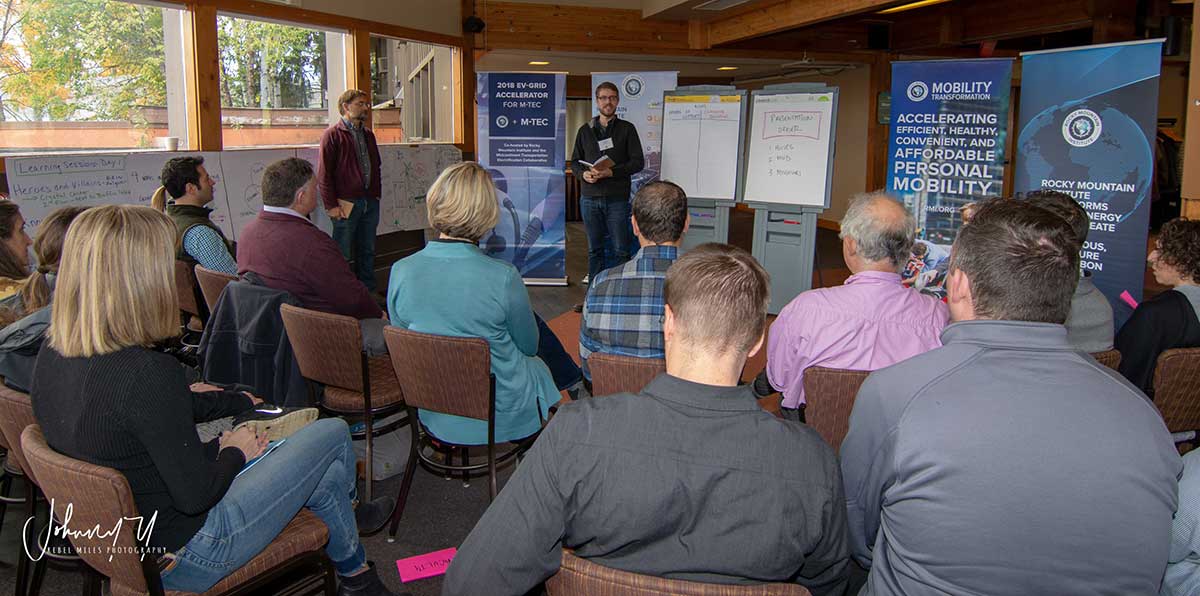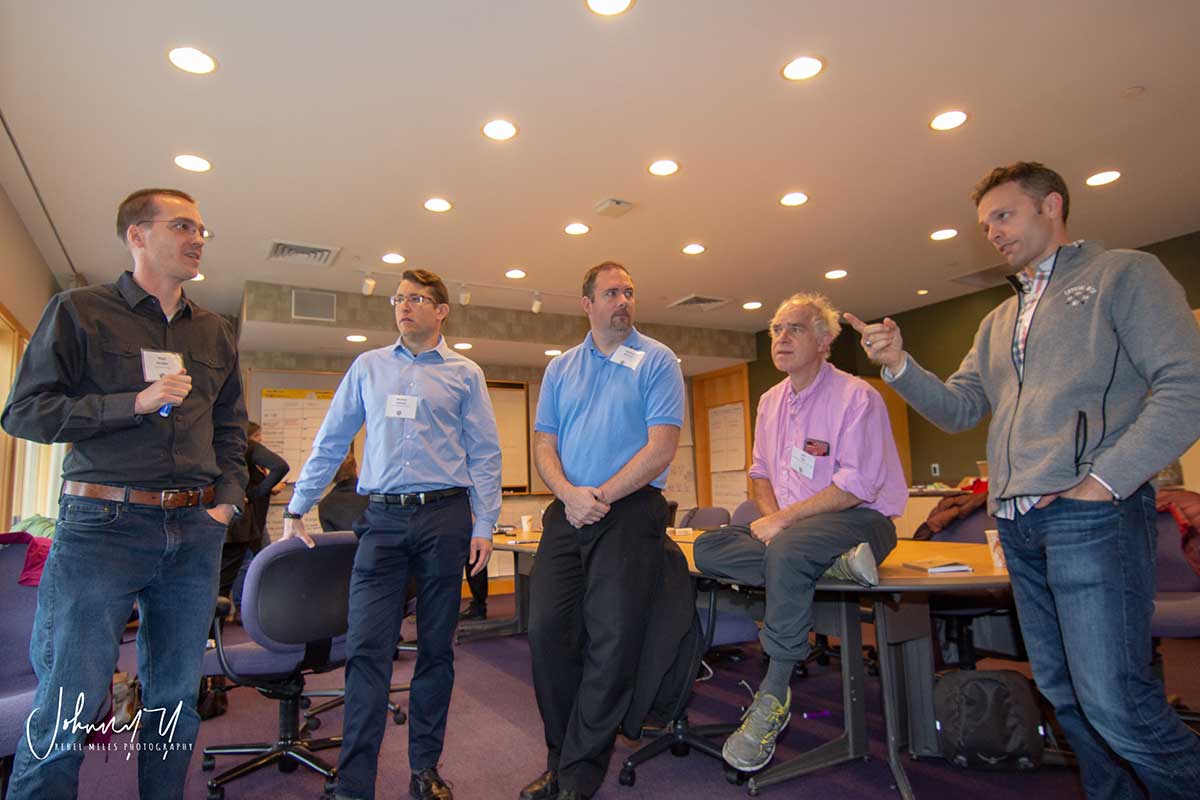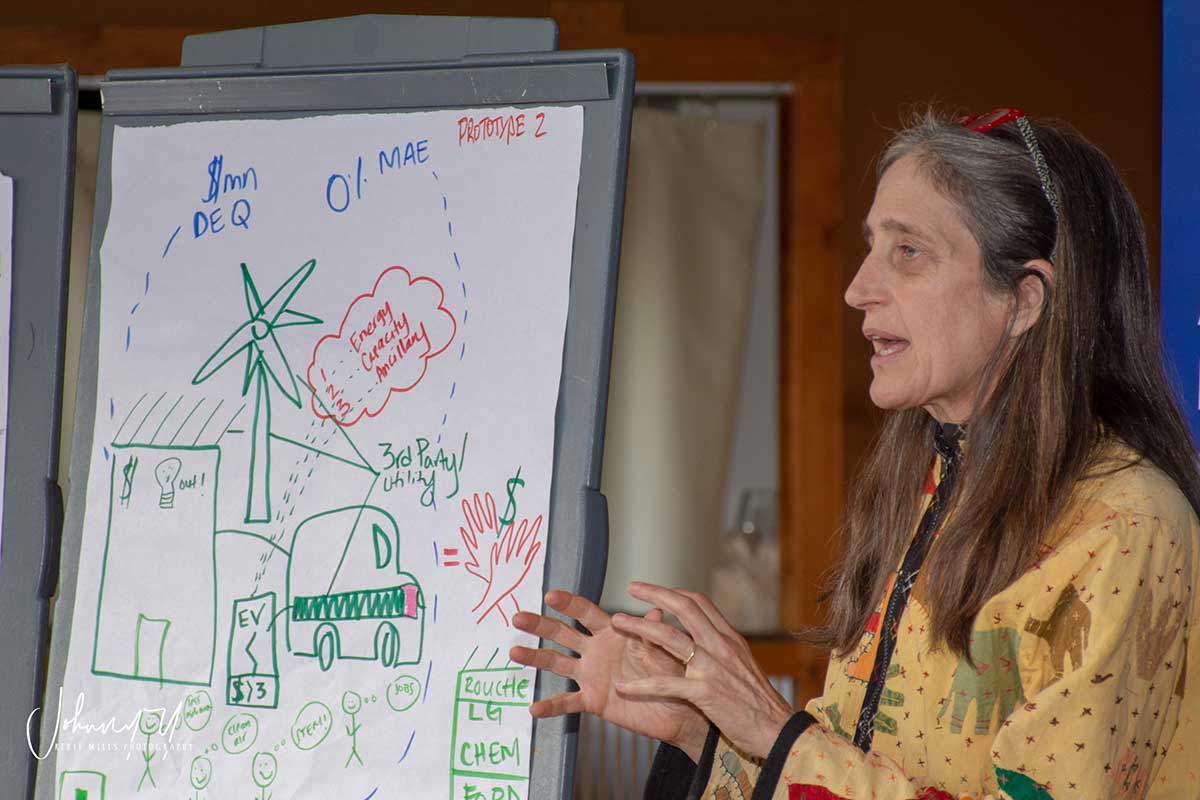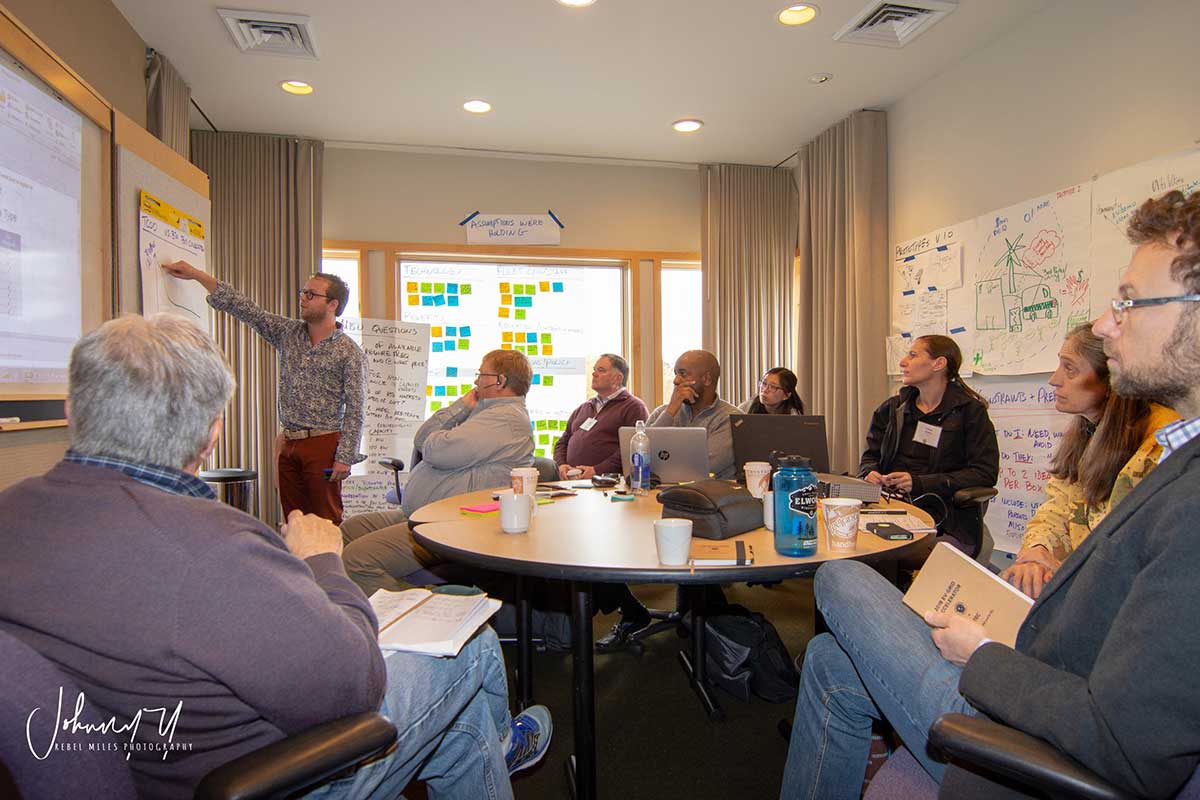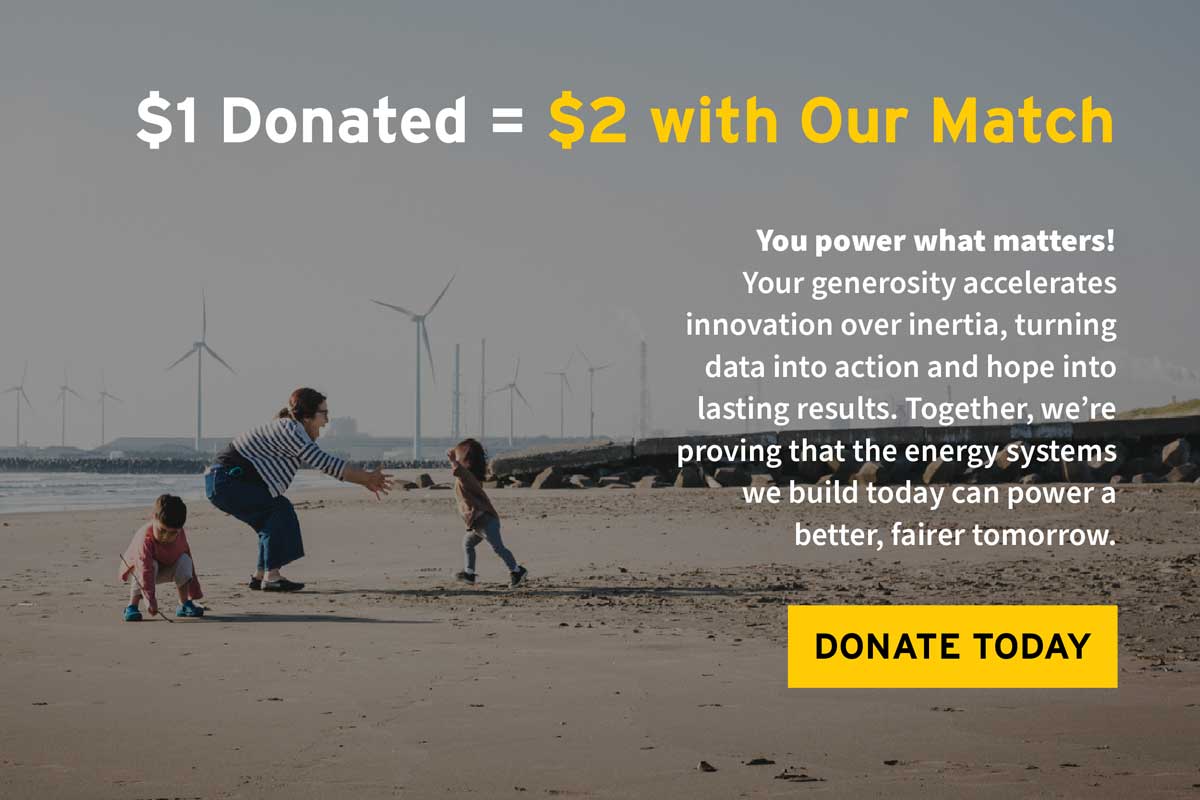electrical care charging in an autumn cityscape
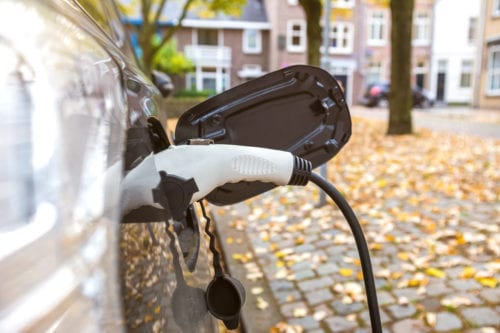
The Vehicles Are Here—Now What? Announcing RMI’s New Mobility Problem-Solving Accelerator Workshops
It’s an exciting time for electric vehicles (EVs). As the number of models increase and the prices decrease, it seems that pretty soon there will be an EV for all needs at an affordable price. And between the Volkswagen settlement (which includes some money for electric vehicle charging infrastructure) and many other regional initiatives, more than $2.5 billion in investment in publicly accessible charging is going to be built. However, as with other major technology transitions, although many pieces of the puzzle are clearly coming together, some vital pieces remain lagging. The EV revolution still faces many barriers, which are predominantly local and quite diverse in nature.
Rocky Mountain Institute’s Accelerator workshops are designed to overcome those barriers. Instead of starting at the conceptual top of the problem, assessing impacts and trying to get visible players to commit to doing something, workshops start at the bottom, leveraging local efforts to take concrete action on a particular opportunity. In October, RMI’s Mobility Transformation practice successfully launched the first Mobility Project Accelerator Workshop. This event brought together teams of stakeholders from the midcontinent region to tackle local, specific challenges to electrifying the transportation sector.
Many questions remain for people looking to go electric for personal or commercial use. People wonder when to buy an EV since prices keep dropping, how long financing support will be available, how to charge an EV, what the electricity will cost, if the grid will be able to handle the new demand, if they will need to change their driving habits, and more. It’s hard to answer all these questions on a local basis, with limited access to data and expertise, even though that is where buying and using EVs happens. Complicated challenges like this require that all the stakeholders necessary to build solutions come together to work collaboratively to understand what underlies barriers, generate possible solutions, and develop a path to move the project forward.
This need for stakeholder collaboration is why we test drove our proven RMI Accelerator Approach in the EV space, tackling key questions and business model development for specific transportation electrification projects. The Midcontinent Transportation Electrification Collaborative (M-TEC) teamed up with us to offer the RMI–M-TEC EV-Grid Project Accelerator, a three-day event held in northern Michigan that combined group learning, facilitator-supported work in project teams, and special cross-cutting insight sessions led by experts in the field.
We selected the upper Midwest for our test drive since it’s the backyard of the American automotive industry, and utilities and governments have expressed a willingness to help the local industry remain competitive during the upcoming transition to vehicle electrification. The upper Midwest is the place where the motivation to electrify does not dominate decision making, as it does in California, where pollution abatement and strong agreement on acting on climate have created a significant leadership role. It is the place where real business cases can and must be created, and competition from traditionally fueled motors and ideas is strong. According to Brendan Jordan, vice president of the Great Plains Institute, “This is a time of experimentation in the Midcontinent region—many utilities are exploring the best ways to serve their customers through EV programs, but we don’t know yet what the best models are. The Accelerator event is a great way to develop new program concepts that can then be replicated.”
RMI has developed a list of key transportation electrification and new mobility implementation problems/opportunities to tackle with our Accelerators. We have built this list based on years of work, starting back in 2009 with Project Get Ready (which benchmarked early city-led activities and charger installation best practices), all the way to today with the North American Council for Freight Efficiency’s (NACFE’s) ongoing series of electric truck reports and our intensive work on mobility projects with Austin, Denver, India, Saint Lucia, and Southern China. The list includes topics such as municipal, shuttle, and school bus systems and charging; design and location of multimodal hubs, including those offering shared ride services and clean micro-transit (scooters, bikes, and electrified two- and three- wheelers); design and execution of fast-charging networks in cities, suburbs, and highway corridors; charging solutions for those without garages, including multifamily housing, entire disadvantaged neighborhoods, and retail and office sites; approaches to delivery fleet electrification and management; rate structures and grid strategies for fast charging; and realizing benefits through managing the charging draw on the grid.
The three teams selected for the first Mobility Project Accelerator Workshop are working on EV school buses, EV charging at multi-dwelling units, and corridor fast charging, which are challenges throughout the region and the country. Each project made substantive progress in a very short time, including the RMI-led efforts prior to the event to effectively shape team membership to include the perspectives and knowledge necessary to find a solution. Team members had a chance to learn from each other, members of other teams, and the diverse set of event faculty members from across the United States.
“At these RMI Accelerators, in three days, you learn more and make more meaningful connections than you do in an entire year,” said Matthew Blackler, CEO of ZEF Energy. “It always results in a considered plan. There is no other opportunity to spend three focused days with a project team and use the time so well.” Another participant, Paul Gruber, manager of product and business development at Consumers Energy, added, “Facilitation by RMI, M-TEC, and invited clean energy experts enabled us to prepare our most robust understanding to date of the key barriers and opportunities for EV charging at multi-dwelling units.”
What’s Next?
We plan to scale up the Accelerator platform in mobility and its electrification to support more teams, in more geographies, on more topics. And as we repeat with multiple teams on similar topics, we can further scale impact by recognizing patterns and common learning and spreading the word to others who cannot get to an Accelerator or potentially do not even have a team yet. We are shaping conversations with other leading players—philanthropists, other NGOs, and key cities—on the best path forward. We’re focusing on two primary approaches:
1) An annual national event with up to a dozen selected teams focusing on multiple topics. This model functions just like RMI’s original electricity system–focused e–Lab Accelerator, which is thriving after more than five years of successful workshops.
2) One or two annual regional or even metropolitan area events, held in different places every year, likely with a more focused topic set relevant to the challenges faced by that geography.
We have also started doing custom events on grid-charging issues for specific companies or groups on more focused topics. We plan to keep this platform in place even as the issues needing resolution evolve. In 2019, we will target more issues and opportunities that we capture from across RMI’s global mobility activities, from swappable motorcycle batteries in India to artificial intelligence-driven charger-system planning in China to e-bus systems in cities around the world. We encourage those with interest or ideas to help shape the best approach to our mobility challenges to contact us with suggestions. We look forward to shaping the new mobility future with you.
